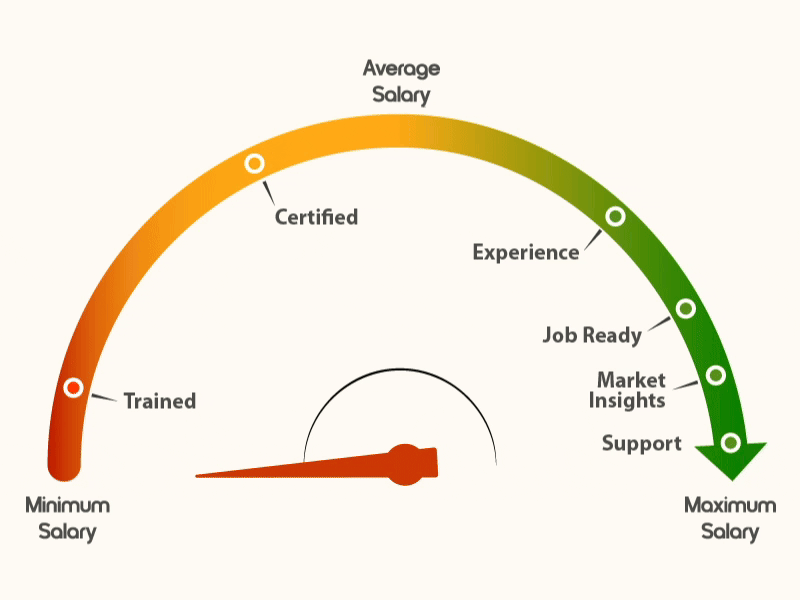Foundations of Intelligent Systems: Machine Learning and Artificial Intelligence
Flexible Schedule
1:1 Support
Hands-on Projects
Acquire Knowledge! Talk to Us.
The GET Advantage: Your Path from Learning to Earning:
- Build in-demand technical and soft skills, validated by industry-recognised certifications.
- Apply learning through real-world projects, case studies, and assignments that make you job-ready.
- Learn what employers want, align your skills with trends, and move towards higher-paying opportunities.
- Continuous mentorship, career coaching, and peer community to guide you beyond the course.
Course Overview
The Foundations of Intelligent Systems: Machine Learning and Artificial Intelligence course provides a complete pathway from the mathematical foundations of machine learning to advanced AI applications. Designed for aspiring data scientists and AI professionals, the program combines theory with hands-on practice, enabling learners to design, train, and deploy intelligent systems. It covers supervised and unsupervised learning, neural networks, deep learning, natural language processing (NLP), and Large Language Models (LLMs), along with real-world implementation using Python, TensorFlow, and PyTorch. Learners also explore advanced AI topics such as federated learning, multimodal systems, and AI deployment pipelines, preparing them to bridge the gap between data and decision-making.
Relevant Industries
Technology & IT Services, Data Science, Artificial Intelligence, Healthcare, Financial Services, Retail & E-commerce, Manufacturing, Research & Development, Education















Overview of Technology
Machine Learning (ML) and Artificial Intelligence (AI) are transforming how businesses operate by enabling systems to learn from data and make intelligent decisions. This course equips learners with the tools and techniques to build AI-driven applications using real-world datasets. Topics include model building, optimization, explainability, and integration with modern AI systems such as LLMs and vector databases. Learners also gain exposure to industry-standard workflows such as MLOps, containerization, and Retrieval-Augmented Generation (RAG) for scalable AI deployment.
Why choose Acquledge for AI & ML courses?
Live Training Sessions
Flexible Schedules
Hands-on Experience
Vast Resource Library
Extensive Support
Enrollment Process
- Sign up on the platform and choose your preferred batch.
- Start your classes on the scheduled date .
- Get access to learning materials and project dashboards.
- Begin your training journey with expert-led sessions.
- Apply your learning through real-world case studies and projects.

Detailed Course Curriculum
- Linear Algebra
- Vectors, matrices, and operations
- Matrix decomposition (SVD, eigenvalues/eigenvectors)
- Calculus
- Derivatives and gradients in ML optimization
- Partial derivatives and multivariate calculus
- Probability & Statistics
- Probability distributions, Bayes’ theorem
- Descriptive statistics, hypothesis testing, confidence intervals
- Data Preprocessing & Feature Engineering
- Data cleaning
- Handling missing data, outlier treatment
- Encoding categorical variables
- Feature scaling, normalization, and transformation
- Supervised Learning
- Regression techniques (linear, logistic)
- Classification algorithms (SVM, k-NN, decision trees)
- Unsupervised Learning
- Clustering methods (k-means, DBSCAN)
- Dimensionality reduction (PCA, t-SNE)
- Model Evaluation Metrics
- Accuracy, precision, recall, F1
- ROC curves, AUC
- Python for Data Analysis
- NumPy and pandas for data manipulation
- Matplotlib and seaborn for visualization
- Data Presentation
- Fundamentals of visualization
- Exploratory data analysis (EDA)
- Communicating insights
- Regularization & Model Validation
- L1/L2 (Ridge, Lasso)
- Cross-validation strategies
- Bias-variance analysis
- Ensemble Methods
- Random Forests, Gradient Boosting Models (XGBoost, LightGBM)
- Time Series Forecasting
- ARIMA, Prophet, Seasonal decomposition
- Model Deployment Basics
- Flask & FastAPI API development for ML
- Build automation tools (Gradle introduction)
- Neural Network Basics
- Perceptron and multilayer perceptrons
- Backpropagation & gradient descent
- Deep Learning Frameworks
- TensorFlow basics
- PyTorch basics
- Computer Vision Models
- Convolutional Neural Networks (CNNs)
- Sequence Models
- RNNs, GRUs, LSTMs
- Natural Language Processing (NLP)
- Tokenization, embeddings
- Transformer models, self-attention
- Generative Models
- Autoencoders & Variational Autoencoders (VAE)
- Generative Adversarial Networks (GANs)
- Batch normalization, dropout, weight decay
- Learning rate schedules
- ML pipeline logging & drift detection
- Transfer learning applications
- Federated learning
- Differential privacy in ML
- Multimodal AI (text + image)
- AI Explainability techniques
- Large Language Models (LLMs)
- Pretraining, fine-tuning, Reinforcement Learning with Feedback (RFT)
- Model compression: quantization, pruning, distillation, LoRA
- Model serving & scalability techniques
- Inference optimization
- Model containerization with Docker
- Vector databases & similarity search (FAISS, Chroma, Weaviate)
- Building and deploying embeddings
- CI/CD pipelines for AI
- Retrieval-Augmented Generation (RAG) workflows
- Prompt engineering and orchestration techniques
- Evaluation strategies for AI-generated outputs
- Agent architecture & goal management
- Tool usage, memory persistence
- Reasoning graphs & decision workflows
Got Questions ? We've got Answers
Acquledge offers a range of online courses including certification programs, knowledge development, and professional upskilling across technology, business, finance, language, and more.
We provide both self-paced learning modules and instructor-led live online classes. Choose according to your schedule and learning preferences.
Yes, our courses are certified and recognized by relevant industry bodies and partners to ensure quality and global acceptance.
Every participant who successfully completes the course and meets assessment criteria receives a certificate that can boost your professional credibility.
Yes, our programs include job placement assistance, resume building, interview preparation, and career counseling to help you transition into new roles.
Fill the form :
Get in touch with us!
Fill in your details and book a demo. Talk to an expert and choose wisely.
For immediate assistance with course-related or technical questions, chat with us.
